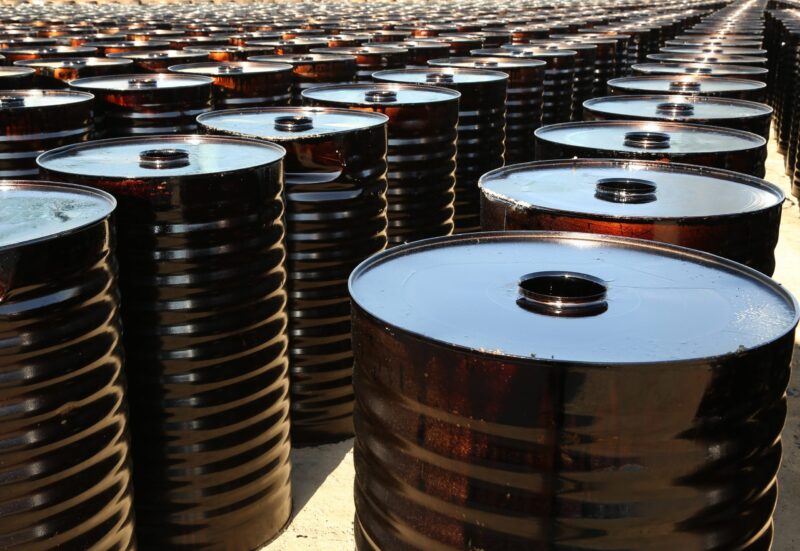What is Viscosity Grade Bitumen?
Viscosity Grade Bitumen often called VG Bitumen is a type of road construction bitumen classified by its viscosity (resistance to flow) at a specified temperature. Unlike penetration-grade bitumen, which is classified based on penetration depth, VG bitumen is measured by how it flows under standard temperature conditions.
Used extensively in hot mix asphalt (HMA) and paving roads, VG bitumen ensures consistency, temperature performance, and durability, especially in regions with extreme weather conditions.
⚙️ What is Viscosity in Bitumen?
Viscosity refers to a fluid’s resistance to flow. In bitumen, this measurement helps determine:
-
Flow characteristics during mixing and compaction
-
Performance under high traffic or hot weather
-
Ease of handling during roadwork
The viscosity of bitumen is measured at:
-
60°C (paving temperature)
-
135°C (mixing temperature)
Viscosity Grade Bitumen is characterized by its viscosity, which is a measure of its resistance to flow. It is classified based on its kinematic viscosity at 60 degrees Celsius, expressed in centistokes (cSt). The higher the viscosity, the thicker and more resistant the bitumen is to flow.
📊 Properties of Viscosity Grade Bitumen
Viscosity Grade (VG) Bitumen is categorized based on its viscosity at 60°C, penetration value, and softening point, among other key properties. These values determine its performance under varying temperature and loading conditions.
| Grade | Viscosity @ 60°C (Poise) | Penetration (0.1 mm) | Softening Point (°C) | Ductility @ 25°C (cm) | Use/Application |
|---|---|---|---|---|---|
| VG-10 | 800–1200 | 80–100 | 40–55 | >75 | Cold climate areas, surface dressing |
| VG-20 | 1600–2400 | 60–80 | 45–60 | >50 | Moderate climate roads |
| VG-30 | 2400–3600 | 50–70 | 47–64 | >40 | High traffic areas, hot mix asphalt |
| VG-40 | 3200–4000 | 40–60 | 50–70 | >25 | Industrial zones, high-temperature regions |
VG Bitumen classification system includes several grades, such as VG-10, VG-20, VG-30, VG-40, VG-50 and VG-60. The number represents the average kinematic viscosity of the bitumen at 60 degrees Celsius. For example, VG-30 has a kinematic viscosity of approximately 300 centistokes.
Explanation of Key Properties:
-
Viscosity @ 60°C: Indicates the flow resistance. Higher viscosity means better resistance to deformation at elevated temperatures.
-
Penetration Value: Measures the hardness or softness of bitumen. Lower values indicate harder bitumen.
-
Softening Point: The temperature at which bitumen softens. A higher softening point indicates better temperature stability.
-
Ductility: Reflects the elasticity of bitumen. More ductility ensures flexibility under stress.
🏗️ Applications of Viscosity Grade Bitumen
Viscosity graded asphalt is widely used in road construction, asphalt manufacturing, and infrastructure projects. Here’s how each grade fits specific uses:
🔸 VG-10
-
Used in cold weather regions
-
Ideal for spraying applications, like surface dressing
-
Easier to pump at low temperatures
🔸 VG-20
-
Common in moderate climates
-
Used in bituminous macadam (BM) and dense bituminous macadam (DBM) layers
🔸 VG-30
-
Suitable for hotter climates and heavy traffic
-
Ideal for expressways, highways, and urban roads
🔸 VG-40
-
Used in high-load zones like bus lanes, industrial areas, or heavy traffic highways
-
Has higher stiffness for improved resistance to rutting
What is Viscosity Grade Bitumen in used?
Viscosity Grade Asphalt is commonly used in the production of hot mix asphalt (HMA) for road construction. It is blended with aggregates and other additives to create a durable and flexible pavement surface. The specific viscosity grade is selected based on factors such as traffic volume, climate conditions, and the desired performance of the pavement.
VG Bitumen affects its ability to coat and adhere to aggregates, which is crucial for ensuring the stability and longevity of the asphalt pavement. Higher viscosity grades are typically used in areas with high traffic loads and extreme weather conditions, as they provide enhanced resistance to rutting and cracking.
✅ Advantages of Viscosity Grade Bitumen
✔️ Better temperature performance than penetration grade
✔️ Improved rutting resistance in hot climates
✔️ Consistency in performance, thanks to viscosity-based classification
✔️ Ease of selection based on application and climate
✔️ Wider acceptance in international and national standards
In addition to road construction, VG Bitumen is also used in various industrial applications. It is employed in the manufacturing of roofing materials, waterproofing membranes, adhesives, sealants, and coatings.
❌ Limitations
✘ Must be heated properly before use
✘ Higher viscosity grades can be harder to work with in cold weather
✘ Improper heating can damage the material
The specific viscosity grade is selected based on the requirements of the particular application.
🏢 Why Choose VG Bitumen from Pars Universal Bitumen?
At Pars Universal Bitumen, we supply premium-grade VG bitumen that complies with international specifications such as ASTM D4402, IS 73:2013, and AASHTO standards.
We offer:
✅ VG-10, VG-20, VG-30, and VG-40
✅ Bulk or drum packaging
✅ Technical data sheets (TDS) & COA included
✅ Global export logistics & compliance
✅ Competitive pricing for large orders
❓ FAQs About Viscosity Grade Bitumen
Q1: Is VG bitumen better than penetration grade?
Yes, Viscosity graded asphalt offers more consistent performance, especially in varied temperatures.
Q2: What’s the difference between VG-30 and VG-40?
VG-40 has higher viscosity and stiffness, ideal for heavy loads. VG-30 is suitable for standard highway use.
Q3: Can VG bitumen be used in all climates?
Different grades suit different climates. VG-10 for cold, VG-30 and VG-40 for hot.
Q4: What is the shelf life of VG bitumen?
Properly stored Viscosity graded asphalt can last for several years without performance loss.
Q5: How is VG bitumen transported?
Pars Universal Bitumen provides shipping in drums, bulk tankers, or containers.
Conclusion: Viscosity Grade Bitumen – The Smart Choice for Durable Roads
Viscosity Grade Bitumen (VG Bitumen) offers consistent quality and predictable performance in various climates and traffic conditions. Whether you’re working on urban highways, industrial zones, or cold-region roads, selecting the correct VG grade—VG-10, VG-20, VG-30, or VG-40—ensures improved durability, workability, and resistance to rutting.
For road engineers, contractors, and infrastructure developers, Viscosity graded asphalt provides a reliable foundation for long-lasting pavement systems.
At Pars Universal Bitumen, we are proud to supply high-quality VG Bitumen worldwide, backed by technical support, flexible logistics, and competitive pricing.
📞 Contact Pars Universal Bitumen
Looking for a trusted VG bitumen supplier?
Partner with Pars Universal Bitumen for premium-grade materials, global delivery, and technical support.
✅ Need help choosing the right VG grade?
📧 Contact us today
📧 Email: [email protected]
📞 Phone: +971 4 878 2031
🌐 Website: PUB-LTD
📩 Request a Quote Today and secure consistent-quality VG Bitumen for your next project. If You have any other Query or Question you want to ask, Please don’t hesitate to Contact Us.




